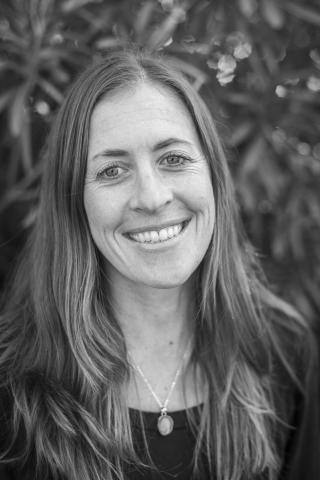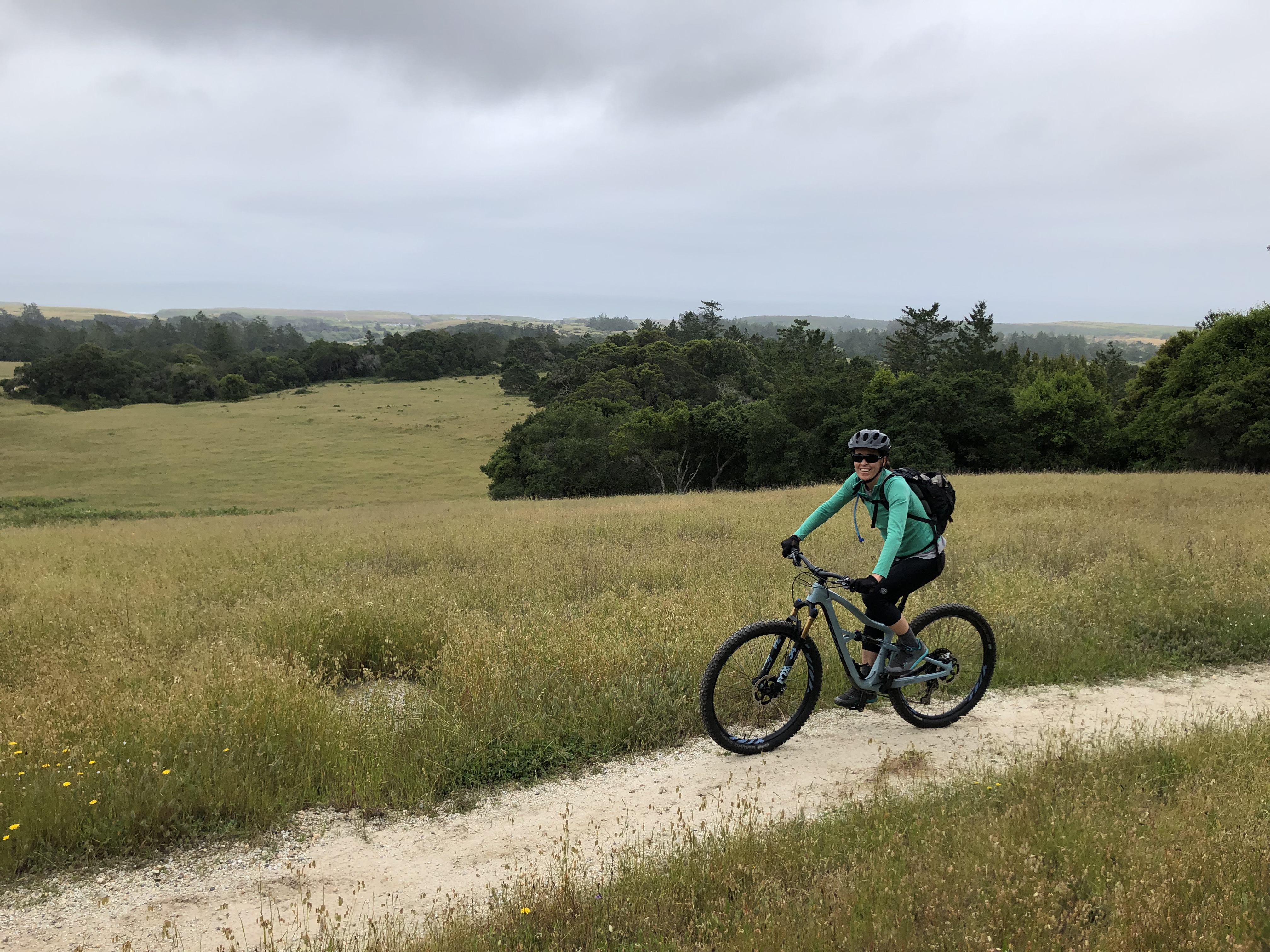In more than 15 years with Patagonia, Senior Manager of Product Responsibility Elissa Foster has witnessed many changes to the apparel industry. She’s also come to understand the full, critical importance of her team’s work. Through travel for her job, she knows what happens when companies neglect or ignore the environmental impact of sourcing, producing, and disposing of their products.
“I’ve seen what happens when you don’t take care of the environment that you live in, and it’s completely devastating,” she says. “I love getting outside and having access to open space, clean air, and clean water. I work in the environmental field to protect those resources for current and future generations.”

Elissa’s mission started with an undergraduate degree in zoology from UCSB. Her first job was dolphin training, working in Hawaii with a small number of dolphins and doing interactive sessions with the public where she would explain what people can do to protect wildlife in their daily lives.
“I really liked that part of my job,” she says. “I was basically giving environmental and conservation talks. It made me start to look into how I could shift careers and work in conservation full time. As a UCSB undergrad alumna, I was familiar with Bren, and I knew it was a leading environmental school. So I wanted to go back.”
Given her background, Elissa came to Bren assuming she would eventually work in the marine science space. Her specialization in the Master of Environmental Science and Management program was coastal marine resource management. But early on, she was introduced to the other possibilities a Bren education could open up.
“I remember it being explained early on that there are four main spaces alumni go to work in—government, nonprofit, corporate, and consulting,” she says. “Bren provides the opportunity to get exposed to a variety of focuses within the environmental field. Gaining that exposure helps students get a better sense of the specific type of work they want to do and is very helpful when starting out in a new career.”
Elissa started at Patagonia as an intern. Originally from Ventura, California, where Patagonia is headquartered, she was familiar with the company and interested in its work. But she didn’t think there would be a role for someone with a zoology and environmental science background at an outdoor apparel company. At the end of her second year at Bren, Patagonia posted an internship for an environmental analyst position. She got that internship, and has moved up at the company over time to her current senior management position. Now, she explains, she’s in a role that is directly linked to the environmental impact of the apparel products, a niche that she has seen steadily growing at other companies in the apparel industry.
The school demands a high quality of work that prepares students well for the professional world. By the end of the two years at Bren, students are ready to work in a space where that is expected.
“At first when I started in the environmental space, I wondered if concern for the environment would be a short trend. I haven’t seen that be the case at all,” she says. “The environmental issues that result from the production and consumption of consumer goods are huge and still growing, which makes it feel like really meaningful work. We have a lot of colleagues that we work with for other brands. We’re always sharing best practices. Internally we’re trying to find ways where we can not only improve Patagonia but also influence the larger apparel space to make it a cleaner industry.”
The Product Responsibility team at Patagonia sits within the larger Materials Innovation and Development group, which uses expertise in textile science and chemistry to develop the materials to be used in Patagonia products. Elissa’s team then evaluates the environmental impact of each step in a material’s life cycle, and they share how the overall impact of the materials and the products can be lessened with the right decisions.
“Ninety percent of the environmental impacts from our company come from making our products, so it’s a huge opportunity for us to figure out ways to reduce those impacts,” she says. “The teamwork and collaboration skills I learned at Bren have really helped me in my career. It makes for a better outcome as a whole when you can listen to each person on the team and understand the lens they are looking at the problem through.”
Elissa has paid forward her own experiences at Bren by hiring students as interns and full-time employees, sponsoring group projects, and speaking to current students interested in her work and the apparel industry. “One of the greatest things about Bren is how well they prepare you to get a job. In addition, the school demands a high quality of work that prepares students well for the professional world. By the end of the two years at Bren, students are ready to work in a space where that is expected,” she says.
“The second greatest thing is the network the Bren School has built. Bren gives students incredible career options and helps connect students to job opportunities when they graduate and throughout their careers. I tell students to be open to a variety of opportunities, and not to be too narrowly focused. You never know what you’ll like and what you’ll learn in a project or a first job.”
